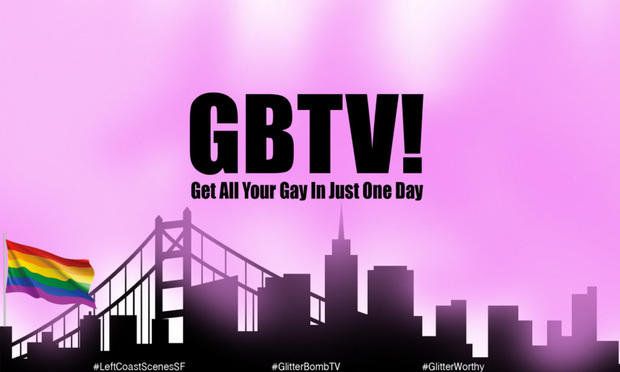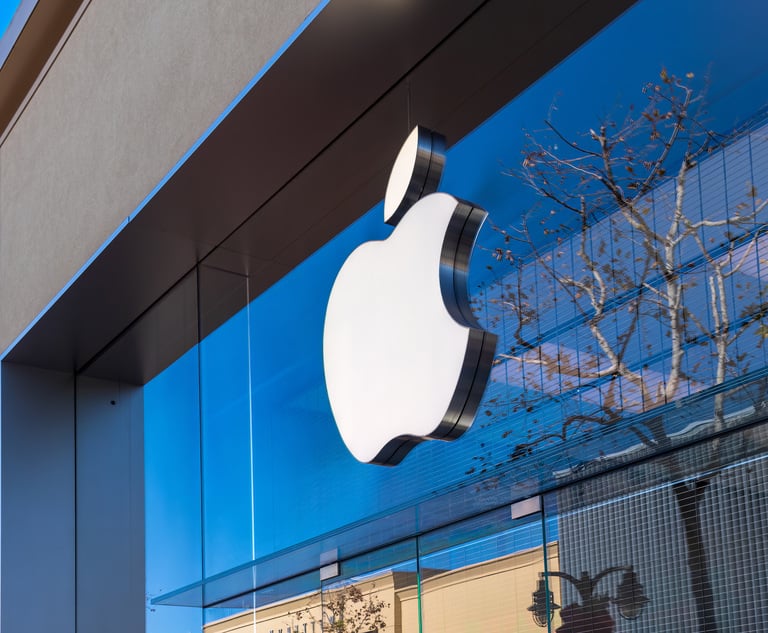In LGBTQ Lawsuit, YouTube Faces Familiar Legal Foe in Browne George Ross
Peter Obstler, partner at bicoastal litigation boutique Browne George Ross, this week filed suit against the video hosting platform on behalf of a class of LGBTQ plaintiffs. Obstler and the firm also represent a nonprofit founded by political commentator Dennis Prager in a lawsuit claiming YouTube discriminates against political conservatives.
August 15, 2019 at 03:26 PM
4 minute read
 Glitter Bomb TV website landing page (Courtesy photo)
Glitter Bomb TV website landing page (Courtesy photo)
YouTube this week was hit with a new lawsuit claiming the company systematically discriminates against videos created by lesbian, gay and transgender posters.
Eight LGBTQ+ YouTube creators claim that content they’ve uploaded to Google’s video platform has been restricted and demonetized, denying them the opportunity to draw advertising because their video has been deemed by the site’s algorithms and moderators as “shocking,” “inappropriate,” “offensive” or “sexually explicit.”
The suit, which seeks to certify a class of LGBTQ+ YouTubers, pits the company with a familiar foe: bicoastal litigation boutique Browne George Ross.
Lawyers from Browne George Ross sued YouTube and Google in 2017 on behalf of Prager University, a nonprofit digital media outfit co-founded by conservative talk show host Dennis Prager, claiming that the companies discriminated against videos that offer conservative commentary on current and historical events.
District Judge Lucy Koh of California’s Northern District dismissed the First Amendment claims in the PragerU case last year, finding that the conservative outlet had failed to show that YouTube was a “public forum” controlled by a “state actor.” Koh remanded the remaining state law claims to state court, where they’re pending before Santa Clara Superior Court Judge Brian Walsh. Browne George Ross’s Peter Obstler will be asking the U.S. Court of Appeals for the Ninth Circuit to revive PragerU’s First Amendment claims in an appeal set for oral argument later this month.
 Peter Obstler (Courtesy photo)
Peter Obstler (Courtesy photo)Obstler and his team landed the PragerU case due to the long-standing relationship between Dennis Prager and former California Gov. Pete Wilson, who is of counsel at Browne George Ross, whereas the new case came to the firm after plaintiff’s Chris Knight and Celso Dulay reached out directly to Obstler. Knight and Dulay, who are a married couple, covered a string of complaints from content creators about YouTube discrimination on their LGBTQ+ news show “GlitterBombTV.”
The issue came to a head for Knight in a phone conversation with Google representatives after the company refused to allow the show to buy advertisements promoting the program’s special Christmas episode. In a recorded conversation, a manager who spoke with Knight said that the video had contained “shocking” content, adding that “the major reason is because of the gay thing.”
YouTube has maintained that its policies don’t single out content related to sexual orientation or gender identity and that its systems don’t restrict or demonetize videos based on the inclusion of terms like “gay” or “transgender.” But Knight and Obstler say that the plaintiffs in the new case have conducted experiments—posting two versions of the same innocuous video, one tagged with keywords like “gay” and “transgender” and one without. They claim that the tagged videos get flagged in ways that prevent them from generating ad revenue and those without the keywords do not.
“We’re hoping at some point to sit down with them,” says Knight of YouTube and Google. “We really care about the community and want to drive systemic change through the lawsuit.”
Adds Obstler, “We’re not doing this to get rich.”
“We’re doing this to test the applications of [the Communications Decency Act] and the breach of a fundamental consumer contract,” he said. “They’re taking our clients’ content. They monetize the content and monetize the data from the engagement with it.”
“The deal is they will treat everyone the same with viewpoint-neutral rules that apply equally to all.”
This content has been archived. It is available through our partners, LexisNexis® and Bloomberg Law.
To view this content, please continue to their sites.
Not a Lexis Subscriber?
Subscribe Now
Not a Bloomberg Law Subscriber?
Subscribe Now
NOT FOR REPRINT
© 2025 ALM Global, LLC, All Rights Reserved. Request academic re-use from www.copyright.com. All other uses, submit a request to [email protected]. For more information visit Asset & Logo Licensing.
You Might Like
View All
K&L Gates Files String of Suits Against Electronics Manufacturer's Competitors, Brightness Misrepresentations
3 minute read
Meta Workers Aren't of One Mind on Company's Retreat From DEI, Fact-Checking

California Court Denies Apple's Motion to Strike Allegations in Gender Bias Class Action

White & Case KOs Claims Against Voltage LLC in Solar Companies' Trade Dispute
Trending Stories
- 1We the People?
- 2New York-Based Skadden Team Joins White & Case Group in Mexico City for Citigroup Demerger
- 3No Two Wildfires Alike: Lawyers Take Different Legal Strategies in California
- 4Poop-Themed Dog Toy OK as Parody, but Still Tarnished Jack Daniel’s Brand, Court Says
- 5Meet the New President of NY's Association of Trial Court Jurists
Who Got The Work
J. Brugh Lower of Gibbons has entered an appearance for industrial equipment supplier Devco Corporation in a pending trademark infringement lawsuit. The suit, accusing the defendant of selling knock-off Graco products, was filed Dec. 18 in New Jersey District Court by Rivkin Radler on behalf of Graco Inc. and Graco Minnesota. The case, assigned to U.S. District Judge Zahid N. Quraishi, is 3:24-cv-11294, Graco Inc. et al v. Devco Corporation.
Who Got The Work
Rebecca Maller-Stein and Kent A. Yalowitz of Arnold & Porter Kaye Scholer have entered their appearances for Hanaco Venture Capital and its executives, Lior Prosor and David Frankel, in a pending securities lawsuit. The action, filed on Dec. 24 in New York Southern District Court by Zell, Aron & Co. on behalf of Goldeneye Advisors, accuses the defendants of negligently and fraudulently managing the plaintiff's $1 million investment. The case, assigned to U.S. District Judge Vernon S. Broderick, is 1:24-cv-09918, Goldeneye Advisors, LLC v. Hanaco Venture Capital, Ltd. et al.
Who Got The Work
Attorneys from A&O Shearman has stepped in as defense counsel for Toronto-Dominion Bank and other defendants in a pending securities class action. The suit, filed Dec. 11 in New York Southern District Court by Bleichmar Fonti & Auld, accuses the defendants of concealing the bank's 'pervasive' deficiencies in regards to its compliance with the Bank Secrecy Act and the quality of its anti-money laundering controls. The case, assigned to U.S. District Judge Arun Subramanian, is 1:24-cv-09445, Gonzalez v. The Toronto-Dominion Bank et al.
Who Got The Work
Crown Castle International, a Pennsylvania company providing shared communications infrastructure, has turned to Luke D. Wolf of Gordon Rees Scully Mansukhani to fend off a pending breach-of-contract lawsuit. The court action, filed Nov. 25 in Michigan Eastern District Court by Hooper Hathaway PC on behalf of The Town Residences LLC, accuses Crown Castle of failing to transfer approximately $30,000 in utility payments from T-Mobile in breach of a roof-top lease and assignment agreement. The case, assigned to U.S. District Judge Susan K. Declercq, is 2:24-cv-13131, The Town Residences LLC v. T-Mobile US, Inc. et al.
Who Got The Work
Wilfred P. Coronato and Daniel M. Schwartz of McCarter & English have stepped in as defense counsel to Electrolux Home Products Inc. in a pending product liability lawsuit. The court action, filed Nov. 26 in New York Eastern District Court by Poulos Lopiccolo PC and Nagel Rice LLP on behalf of David Stern, alleges that the defendant's refrigerators’ drawers and shelving repeatedly break and fall apart within months after purchase. The case, assigned to U.S. District Judge Joan M. Azrack, is 2:24-cv-08204, Stern v. Electrolux Home Products, Inc.
Featured Firms
Law Offices of Gary Martin Hays & Associates, P.C.
(470) 294-1674
Law Offices of Mark E. Salomone
(857) 444-6468
Smith & Hassler
(713) 739-1250






